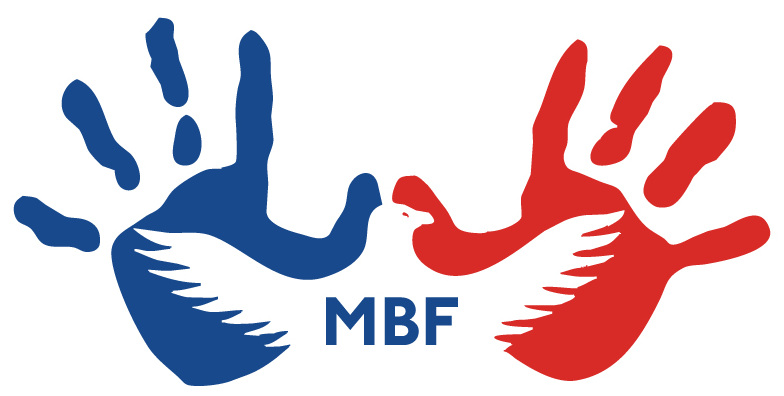THE FOUNDATION
Based on the public health and social-ecological frameworks for prevention, MBF Prevention Education Programs were developed based on the latest research and prevention best practices. These include developmental victimology and polyvictimization research, cognitive-behavioral theory, healthy sexual development, and trauma-informed practices, with a specific focus on the developmental stages and different learning styles of children. The lessons are presented in a fun and engaging way that increase knowledge, build preventative as well as resistance skills, engage safe adults, and address risk and protective factors. Learning objectives and evaluation standards are included, as well as alignment with academic and health instruction standards.PROGRAM EVALUATION RESEARCH
When assessed along the continuum of evidence presented by the Centers for Disease Control (CDC), MBF Child Safety Matters® is a well-supported, or evidence-based, curriculum for elementary school students in grades K-5. Four independent research studies have examined the effectiveness of the program - one with long-term follow up - with positive results for both student knowledge gains and facilitator implementation fidelity. MBF has four additional comprehensive, evidence-informed programs, which were developed based on the same theoretical knowledge and research best-practices, suggesting the same quality and effectiveness. In addition to research evidence, MBF programs also have experiential and contextual evidence support. The process of development, review, and refinement has included both education and prevention subject matter experts as well as piloting programs within the context and settings in which they will be implemented. This has allowed us to create programs that are not only effective, but are acceptable, practical, and being used across the U.S. by thousands of facilitators with over nine million children.2019 RANDOMIZED CONTROL TRIAL
View Research ReportsProgram:
MBF Child Safety Matters®
Sample Size:
826 Kindergarten through 2nd grade students
Summary/Findings:
This study evaluated the ability of the MBF Child Safety Matters® curriculum to increase the knowledge of children in Kindergarten to 2nd grade who were exposed to it. Participants included 9 Florida schools across 7 counties, 54 classrooms, and 826 students (at pre-test). Classrooms were randomly assigned to receive the program using the 2-lesson format or 4-lesson format or assigned to the wait-list control group. Knowledge was assessed with a questionnaire administered prior to the curriculum and then approximately 11 weeks later. Children who received the curriculum increased their knowledge for the kind of information included in the program, and this knowledge increased significantly compared to the control group of children who did not receive the program.
Researchers:
- David Finkelhor, PhD – Crimes Against Children Research Center, Family Research Laboratory, and Department of Sociology, University of New Hampshire
- Melissa A. Bright, PhD – Anita Zucker Center for Excellence in Early Childhood Studies, University of Florida
- Mona Sayedul Huq, PhD – Anita Zucker Center for Excellence in Early Childhood Studies, University of Florida
- David Miller, PhD – School of Human Development and Organizational Studies in Education, University of Florida
2019 RANDOMIZED CONTROL TRIAL
View Research ReportsProgram:
MBF Child Safety Matters®
Sample Size:
2,414 Kindergarten through 5th grade students
Summary/Findings:
This study evaluated the knowledge acquisition of children who were exposed to the MBF Child Safety Matters® curriculum. Participants included 6 Georgia schools across 3 counties, 136 classrooms, and 2,414 students at pre-test. Classrooms within each grade at each school were randomly assigned to receive the program or be in a wait-list control and receive the curriculum after the evaluation. Knowledge was assessed with a questionnaire administered prior to the curriculum and then approximately a month later. Children who received the curriculum increased their knowledge for the kind of information included in the program relative to control children who did not receive the program.
Researcher:
Daniel Whitaker, PhD – School of Public Health, Georgia State University
Erin Weeks, MPH – School of Public Health, Georgia State University
Program:
MBF Child Safety Matters®
Sample Size:
1,176 Kindergarten through 5th grade students
Summary/Findings:
This study utilized a randomized control trial (RCT) design to examine the knowledge acquisition of children who were exposed to the Monique Burr Foundation’s Child Safety Matters® curriculum, a program designed to educate Kindergarten to 5th grade children about physical abuse, sexual abuse and bullying. Participants included 1176 students from 72 classrooms in 12 Florida schools across 8 counties. Schools were matched in pairs and randomly assigned to receive the program or be in a wait-list control. Knowledge was assessed with a questionnaire administered prior to the curriculum (T1) as well as approximately 8 weeks (T2) and approximately 7 months (T3) later. Children who received the curriculum increased their knowledge for the kind of information included in the program, and this knowledge increased significantly and was sustained over the 7 months compared to the control group of children who did not receive the program.
Researchers:
- David Finkelhor, PhD – Crimes Against Children Research Center, Family Research Laboratory, and Department of Sociology, University of New Hampshire
- Melissa A. Bright, PhD – Anita Zucker Center for Excellence in Early Childhood Studies, University of Florida
- Mona Sayedul Huq, PhD – Anita Zucker Center for Excellence in Early Childhood Studies, University of Florida
- David Miller, PhD – School of Human Development and Organizational Studies in Education, University of Florida
CLICK HERE to download the study abstract.
CLICK HERE to access the journal article.
For additional information about the published study, email Dr. Melissa Bright at mbright08@ufl.edu or Dr. David Finkelhor at DavidFinkelhor@unh.edu.
2015 ONE GROUP PRE-/POST-TEST EVALUATION
View Research ReportsProgram:
MBF Child Safety Matters®
Sample Size:
620 Kindergarten through 5th grade students
Summary/Findings:
Evidence from the child assessments suggest that the program is successful in educating elementary students with strategies to prevent bullying, cyberbullying, digital abuse, and all types of child abuse, with 96% of participants achieving pre- to post-test gains on the measures. Findings also suggest that the program is being delivered as designed and with high procedural fidelity to the prescribed curriculum, with 90% of participating facilitators adhering to program language and curriculum. The evaluation findings suggest that the quality of program delivery is adequate and that there are many positive elements of the program. The lessons are clear, easy to implement, age appropriate, and they appropriately cover a broad range of child safety issues.
Researchers:
- Ithel Jones, PhD, School of Teacher Education, Florida State University
- Youn Ah Jung, MS, School of Teacher Education, Florida State University
What Is “Evidence-Based”?
And are other programs truly evidence-based?
MBF is committed to ongoing research to ensure the efficacy of all programs and strives to be transparent in our explanations of MBF program efficacy or evidence base. While many organizations and programs claim they are “evidence-based,” there is no single set of guidelines or criteria that must be met to make this claim. Many think of “evidence-based” as a program listed on a registry site. While there are registries that list programs according to their level of evidence, there are quality and effective programs not listed on any registry.
It is important for stakeholders assessing violence prevention programs to understand the components and continuum of evidence. Program users are encouraged to research programs’ claims of evidence and assess their accuracy.
In assessing prevention programs, it is important to assess the strength of evidence as well as the effectiveness of a program to achieve its desired outcomes. It is equally important to know that a program will work and be successful in the particular context and setting in which it will be implemented.
According to the Centers for Disease Control, “Evidence-based decision-making is a process for making decisions about a program, practice, or policy that is grounded in the best available research evidence and informed by experiential evidence from the field and relevant contextual evidence.”[1]
The Best Available Research Evidence enables researchers, practitioners, and policy-makers to determine whether or not a prevention program, practice, or policy is actually achieving the outcomes it aims to and in the way it intends. The more rigorous the research, the more compelling the evidence. The extent to which a prevention strategy has been replicated in multiple, applied settings with diverse populations (external/ecological validity), and the availability and accessibility of implementation supports (implementation guidance) are also important aspects of best available research evidence.
DOCUMENTS AND GUIDELINES ON PREVENTION RESEARCH AND PROGRAM BEST PRACTICES
Below you will find the Theoretical Framework and Academic Alignment Safety Briefs for our classroom-based programs. National documents list program alignment with Common Core Standards, while Florida documents list alignment with Florida Education Standards.
National
Florida
Additional Documents
MBF Programs - Evidence Base
Information about understanding evidence and the evidence base of MBF Programs.
DownloadSafety Brief: Victimization, Prevention, & Academic Achievement
Research related to traumatized children and academic achievement.
DownloadGuidelines for Child Safety Programs
National Center for Missing and Exploited Children’s (NCMEC) Guide for choosing a community-based safety program.
DownloadSafety Brief: Program Comparison
A program comparison checklist based on the NCMEC guidelines above.
DownloadWhat They're Saying...
There’s not a child in the world who can’t benefit from this program. There are so many instances where we see children who have been damaged and hurt. Things happened to them and we think, if they’d only had this program, if they’d only had the benefit of this education, that might not have happened to them. If we can prevent that from happening to a single child, then it’s worth all the effort we have put forth.
The MBF Child Safety Matters program is impressive. This important information is well formulated and well presented, developmentally appropriate, and based on good understanding of literature.
The MBF Teen Safety Matters curriculum hosts an in-depth approach to important social and safety concerns relevant to youth. The program content is age-appropriate with engaging activities, jargon, and realistic situations to positively promote a relatable and impacting learning experience…Teen Safety Matters is an educational benefit to all parties involved – students, parents, facilitators, and schools.

